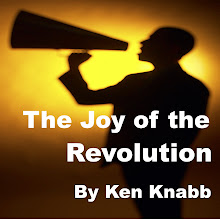 bopsecrets | A radical situation is a collective awakening. In such situations people become much more open to new perspectives, readier to question previous assumptions, quicker to see through the usual cons. People learn more about society in a week than in years of academic “social studies” or leftist “consciousness raising.”. Everything seems possible — and much more is possible. People can hardly believe what they used to put up with in “the old days.”. Passive consumption is replaced by active communication. Strangers strike up lively discussions on street corners. Debates continue round the clock, new arrivals constantly replacing those who depart for other activities or to try to catch a few hours of sleep, though they are usually too excited to sleep very long. While some people succumb to demagogues, others start making their own proposals and taking their own initiatives. Bystanders get drawn into the vortex, and go through astonishingly rapid changes. Radical situations are the rare moments when ualitative change really becomes possible. Far from being abnormal, they reveal how abnormally repressed we usually are; they make our “normal” life seem like sleepwalking. —Ken Knabb, The Joy of Revolution
bopsecrets | A radical situation is a collective awakening. In such situations people become much more open to new perspectives, readier to question previous assumptions, quicker to see through the usual cons. People learn more about society in a week than in years of academic “social studies” or leftist “consciousness raising.”. Everything seems possible — and much more is possible. People can hardly believe what they used to put up with in “the old days.”. Passive consumption is replaced by active communication. Strangers strike up lively discussions on street corners. Debates continue round the clock, new arrivals constantly replacing those who depart for other activities or to try to catch a few hours of sleep, though they are usually too excited to sleep very long. While some people succumb to demagogues, others start making their own proposals and taking their own initiatives. Bystanders get drawn into the vortex, and go through astonishingly rapid changes. Radical situations are the rare moments when ualitative change really becomes possible. Far from being abnormal, they reveal how abnormally repressed we usually are; they make our “normal” life seem like sleepwalking. —Ken Knabb, The Joy of RevolutionThe “Occupy” movement that has swept across the country over the last four weeks is already the most significant radical breakthrough in America since the 1960s. And it is just beginning.
It started on September 17, when some 2000 people came together in New York City to “Occupy Wall Street” in protest against the increasingly glaring domination of a tiny economic elite over the “other 99%.” The participants began an ongoing tent-city type occupation of a park near Wall Street (redubbed Liberty Plaza in a salute to the Tahrir Square occupation in Egypt) and formed a general assembly that has continued to meet every day. Though at first almost totally ignored by the mainstream media, this action rapidly began to inspire similar occupations in hundreds of cities across the country and many others around the world.
The ruling elite don’t know what’s hit them and have suddenly been thrown on the defensive, while the clueless media pundits try to dismiss the movement for failing to articulate a coherent program or list of demands. The participants have of course expressed numerous grievances, grievances that are obvious enough to anyone who has been paying attention to what’s been going on in the world. But they have wisely avoided limiting themselves to a single demand, or even just a few demands, because it has become increasingly clear that every aspect of the system is problematic and that all the problems are interrelated. Instead, recognizing that popular participation is itself an essential part of any real solution, they have come up with a disarmingly simple yet eminently subversive proposal, urging the people of the world to “Exercise your right to peaceably assemble; occupy public space; create a process to address the problems we face, and generate solutions accessible to everyone. Join us and make your voices heard!” (Declaration of the Occupation of New York City).
Almost as clueless are those doctrinaire radicals who remain on the sidelines glumly predicting that the movement will be coopted or complaining that it hasn’t instantly adopted the most radical positions. They of all people should know that the dynamic of social movements is far more important than their ostensible ideological positions. Revolutions arise out of complex processes of social debate and interaction that happen to reach a critical mass and trigger a chain reaction — processes very much like what we are seeing at this moment. The “99%” slogan may not be a very precise “class analysis,” but it’s a close enough approximation for starters, an excellent meme to cut through a lot of traditional sociological jargon and make the point that the vast majority of people are subordinate to a system run by and for a tiny ruling elite. And it rightly puts the focus on the economic institutions rather than on the politicians who are merely their lackeys. The countless grievances may not constitute a coherent program, but taken as a whole they already imply a fundamental transformation of the system. The nature of that transformation will become clearer as the struggle develops. If the movement ends up forcing the system to come up with some sort of significant, New Deal-type reforms, so much the better — that will temporarily ease conditions so we can more easily push further. If the system proves incapable of implementing any significant reforms, that will force people to look into more radical alternatives.


0 comments:
Post a Comment